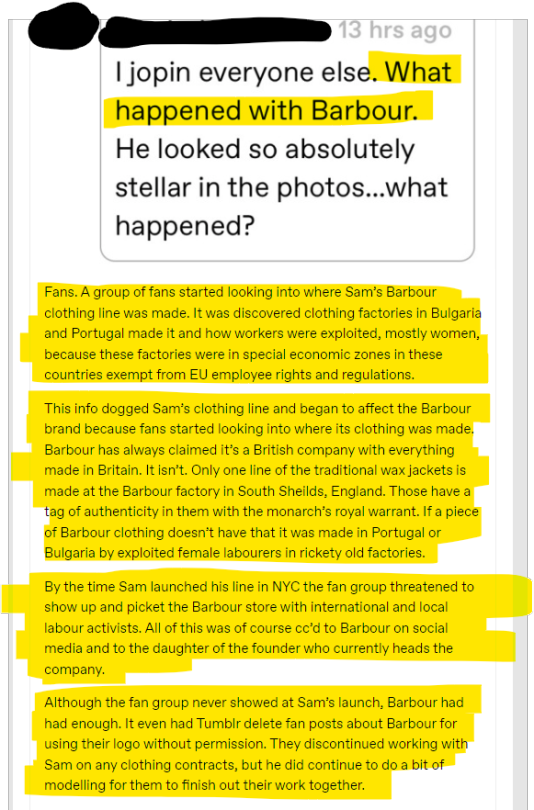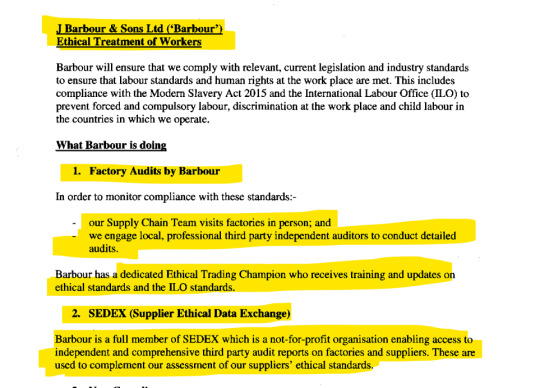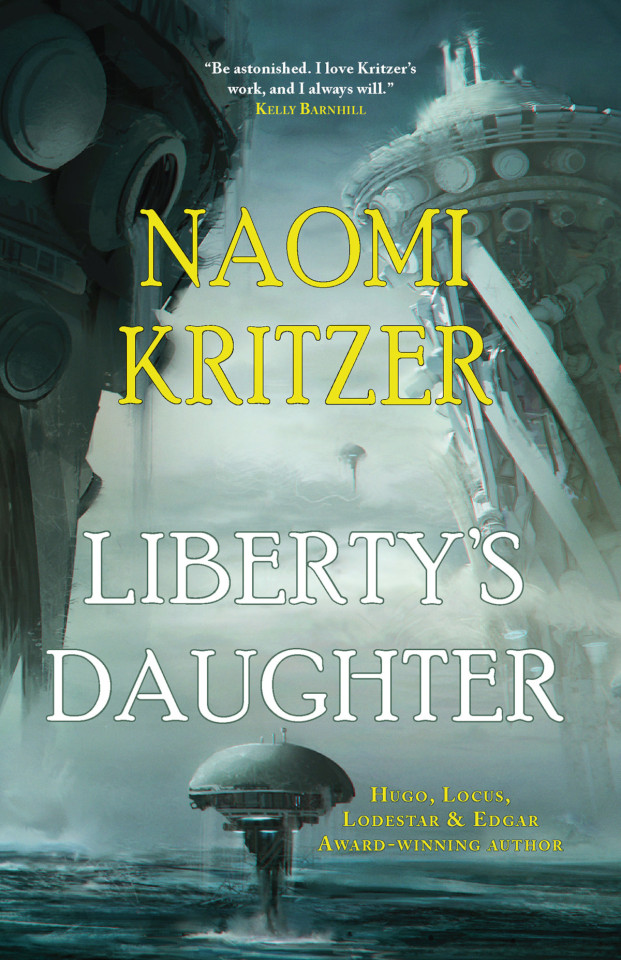#Selling to State and Local Market
Text
Six Factors For Selling Into The State & Local Government "SLED" Market
The sales environment – and customer service needs – are not the same with state, local, and education agencies as they are in the federal market.
_

View On WordPress
2 notes
·
View notes
Text
Roxette - The Look
1989
"The Look" is a song by pop duo Roxette; Sweden's second-best-selling music act after ABBA. It was released in early 1989 as the fourth single from their second studio album, Look Sharp! (1988). The album was an immediate commercial success in their home country, spending seven weeks at number one on the Swedish Albums Chart. "The Look" was written by Per Gessle as an exercise while learning how to operate the Ensoniq ESQ-1 synthesizer he had recently purchased, using a repeated A–G–D bass line as the song's core. The track's sixteenth-note rhythm was inspired by the work of ZZ Top. The original title was "He's Got the Look", with the lyrics using male pronouns. Gessle said this was done because he initially wanted Marie Fredriksson to sing the track. Both he and EMI Sweden had chosen to highlight Fredriksson as Roxette's lead vocalist. However, when recording the demo, Gessle realised the song "didn't fit her style that well, so I had a go and it sounded OK."
The singles from Look Sharp! at the time were only released in Sweden, Germany and France. However, an American exchange student from Minnesota named Dean Cushman returned from Sweden and gave his copy of the album to his local Top 40 radio station, KDWB-FM in Minneapolis. The station's program director Brian Phillips initially ignored Cushman's request to play a song from the album, leaving the CD unplayed in his office for several weeks. Phillips eventually listened to it after learning Cushman had come to the office requesting the return of his CD. Immediately impressed by the album's opening track, "The Look" was played by the station for the first time on US radio less than an hour later, and the response from listeners was overwhelmingly positive; the station immediately began receiving phone calls to replay the track.
KDWB began distributing the track to their sister radio operations, sending 500 copies to other stations throughout the United States. EMI America promptly signed the duo to a recording contract as a result of the airplay. The label had previously rejected Roxette as "unsuitable for the American market". The song had already entered the top fifty of the Billboard Hot 100 before official promotion began, peaking at number one on the chart eight weeks later. This made "The Look" the third number one single by a Swedish act on the Billboard Hot 100, following Blue Swede's "Hooked on a Feeling" (poll #152) in 1974 and ABBA's "Dancing Queen" in 1976.
The track went on to top the charts in 25 countries. It spent three weeks atop the New Zealand Singles Chart, and six weeks at number one in Australia, where it was certified platinum for sales in excess of 70,000 copies. It also topped the charts throughout Scandinavia. The song spent five weeks at number one in West Germany, and an additional five weeks at number two. It was a massive success in Spain and Switzerland, spending eight weeks at number one in both countries. It reached number seven on the UK Singles Chart.
"The Look" received a total of 80,5% yes votes!
youtube
764 notes
·
View notes
Text
Going through the bills proposed in the kentucky 2024 legislative session and some of the things being proposed are
make a PFAS Working Group
require homeless shelters to provide free menstrual products (it's actually disturbing that they didn't already)
require schools to provide free menstrual products
create harm reduction centers and lower penalties for possessing controlled substances
require insurance to pay for cancer screenings (okay. low bar but okay)
abolish the death penalty (actually has a couple republican sponsors)
decriminalize cannabis
make fluoridation of water in districts optional (?????)
make coal the "state rock" of Kentucky
Prohibit children from being interrogated in a "deceptive manner" (?)
Make weight discrimination illegal
pay schools to food grown at kentucky farms to provide for school meals at low income schools (hey that's rad)
Lower the age of carrying a concealed deadly weapon from 21 to 18 (?????????????)
Require companies to give their employees earned paid sick leave
Impose restrictions on the collection of biometric data by private entities
Allow poultry to be sold at farmers' markets and at farms
pay for cancer screenings for firefighters
let pregnant incarcerated people have midwives or doula services
require that public high school curriculum include instruction on the history of racism
Remove Robert E. Lee Day, Confederate Memorial Day, and Jefferson Davis Day from the list of public holidays (WE HAVE THOSE?!!?!?!)
Retroactively expunge some cannabis convictions
"Prohibit public school districts from expanding any resources or funds on diversity, equity, inclusion, and belonging or political or social activism; prohibit public school districts from engaging in diversity, equity, inclusion, and belonging" (HUH?????)
require schools to give kids a lunch period of at least 30 minutes (the bar is in hell)
provide scholarships for teachers to help the teacher shortage and give teachers compensation for planning time
require schools to have defibrillators
make it so a homeless person doesn't have to pay to get a copy of their birth certificate
require a working smoke detector to be present in any house sold (...did we not already have this?)
create the Kentucky Urban Farming Youth Initiative
Require local governments to lower minimum square footage requirements for housing, and facilitate multifamily housing, manufactured housing, and "tiny homes," and require that zoning laws have a "substantial connection to protection of public safety, health, and usage of property" (This could be a good thing??)
require hiring and licensing authorities to allow people convicted of a crime an opportunity to get a job
Propose a new section of the Kentucky Constitution that guarantees the right of an individual to buy, sell, or use a certain amount of cannabis and to grow a small amount of cannabis plants, and put this on the ballot (LET'S FUCKING GOOOOOO LET THE PEOPLE DECIDE please this would be so funny)
Now let's watch how many of the good and basic common sense laws get left to die by Republicans because Republicans are ghouls
this is why it's important to vote in local elections, this is the kind of stuff that's being decided upon
989 notes
·
View notes
Text
The unexpected upside of global monopoly capitalism

I'm touring my new, nationally bestselling novel The Bezzle! Catch me TODAY (Apr 10) at UCLA, then Chicago (Apr 17), Torino (Apr 21) Marin County (Apr 27), Winnipeg (May 2), Calgary (May 3), Vancouver (May 4), and beyond!

Here's a silver lining to global monopoly capitalism: it means we're all fighting the same enemy, who is using the same tactics everywhere. The same coordination tools that allow corporations to extend their tendrils to every corner of the Earth allows regulators and labor organizers to coordinate their resistance.
That's a lesson Mercedes is learning. In 2023, Germany's Supply Chain Act went into effect, which bans large corporations with a German presence from using child labor, violating health and safety standards, and (critically) interfering with union organizers:
https://www.bafa.de/EN/Supply_Chain_Act/Overview/overview_node.html
Across the ocean, in the USA, Mercedes has a preference for building its cars in the American South, the so-called "right to work" states where US labor law is routinely flouted and unions are thin on the ground. As The American Prospect's Harold Meyerson writes, the only non-union Mercedes factories in the world are in the US:
https://prospect.org/labor/2024-04-08-american-workers-german-law-uaw-unions/
But American workers – especially southern workers – are on an organizing tear, unionizing their workplaces at a rate not seen in generations. Their unprecedented success is down to their commitment, solidarity and shrewd tactics – all buoyed by a refreshingly pro-worker NLRB, who have workers' backs in ways also not seen since the Carter administration:
https://pluralistic.net/2023/09/14/prop-22-never-again/#norms-code-laws-markets
Workers at Mercedes' factory in Vance, Alabama are trying to join the UAW, and Mercedes is playing dirty, using the tried-and-true union-busting tactics that have held workplace democracy at bay for decades. The UAW has lodged a complaint with the NLRB, naturally:
https://www.commondreams.org/news/alabama-mercedes-benz
But the UAW has also filed a complaint with BAFA, the German regulator in charge of the Supply Chain Act, seeking penalties against Mercedes-Benz Group AG:
https://uaw.org/uaw-files-charges-in-germany-against-mercedes-benz-companys-anti-union-campaign-against-u-s-autoworkers-violates-new-german-law-on-global-supply-chain-practices/
That's a huge deal, because the German Supply Chain Act goes hard. If Mercedes is convicted of union-busting in Alabama, its German parent-company faces a fine of 2% of its global total revenue, and will no longer be eligible to sell products to the German government. Chomp.
Now, the German Supply Chain Act is new, and this is the first petition filed by a non-German union with BAFA, so it's not a slam dunk. But supermajorities of Mercedes workers at the Alabama factory have signed UAW cards, and the election is going to happen in May or June. And the UAW – under new leadership, thanks to a revolution that overthrew the corrupt old guard – has its sights set on all the auto-makers in the American south.
As Meyerson writes, the south is America's onshore offshore, a regulatory haven where corporations pay minimal or no tax and are free to abuse their workers, pollute, and corrupt local governments with a free hand (no wonder American industry is flocking to these states). Meyerson: "The economic impact of unionizing the South, in other words, could almost be placed in the same category as reshoring work that had gone to China."
The German Supply Chain Act was passed with the help of Germany's powerful labor unions, in an act of solidarity with workers employed by German companies all over the world. This is that unexpected benefit to globalism: the fact that Mercedes has extrusions into both the American and German political spheres means that both American and German workers can collaborate to bring it to heel.
The same is true for antitrust regulators. The multinational corporations that are in regulators' crosshairs in the US, the EU, the UK, Australia, Japan, South Korea and beyond use the same playbook in every country. That's doubly true of Big Tech companies, who literally run the same code – embodying the same illegal practices – on servers in every country.
The UK's Competition and Markets Authority has led the pack on convening summits where antitrust enforcers from all over the world gather to compare notes and collaborate on enforcement strategies:
https://www.eventbrite.co.uk/e/cma-data-technology-and-analytics-conference-2022-registration-308678625077
And the CMA's Digital Markets Unit – which boasts the the largest tech staff of any competition regulator in the world – produces detailed market studies that turn out to be roadmaps for other territories' enforces to follow – like this mobile market study:
https://assets.publishing.service.gov.uk/media/63f61bc0d3bf7f62e8c34a02/Mobile_Ecosystems_Final_Report_amended_2.pdf
Which was extensively referenced in the EU during the planning of the Digital Markets Act, and in the US Congress for similar legislation:
https://www.congress.gov/bill/117th-congress/senate-bill/2710
It also helped enforcers in Japan:
https://asia.nikkei.com/Business/Technology/Japan-to-crack-down-on-Apple-and-Google-app-store-monopolies
And South Korea:
https://www.reuters.com/technology/skorea-considers-505-mln-fine-against-google-apple-over-app-market-practices-2023-10-06/
Just as Mercedes workers in Germany and the USA share a common enemy, allowing for coordinated action that takes advantage of vulnerable flanks wherever they are found, anti-monopoly enforcers are sharing notes, evidence, and tactics to strike at multinationals that are bigger than most countries – but not when those countries combine.
This is an unexpected upside to global monopolies: when we all share a common enemy, we've got endless opportunities for coordinated offenses and devastating pincer maneuvers.

If you'd like an essay-formatted version of this post to read or share, here's a link to it on pluralistic.net, my surveillance-free, ad-free, tracker-free blog:
https://pluralistic.net/2024/04/10/an-injury-to-one/#is-an-injury-to-all
#pluralistic#monopoly#labor#nlrb#germany#harold meyerson#supply chain act#right to work#onshore offshore#uaw#vance alabama#vance#alabama#bafa#mercedes#antitrust#trustbusting
694 notes
·
View notes
Text
in addition to being prone to an obvious naturalistic fallacy, the oft-repeated claim that various supplements / herbs / botanicals are being somehow suppressed by pharmaceutical interests seeking to protect their own profits ('they would rather sell you a pill') belies a clear misunderstanding of the relationship between 'industrial' pharmacology and plant matter. bioprospecting, the search for plants and molecular components of plants that can be developed into commercial products, has been one of the economic motivations and rationalisations for european colonialism and imperialism since the so-called 'age of exploration'. state-funded bioprospectors specifically sought 'exotic' plants that could be imported to europe and sold as food or materia medica—often both, as in the cases of coffee or chocolate—or, even better, cultivated in 'economic' botanical gardens attached to universities, medical schools, or royal palaces and scientific institutions.
this fundamental attitude toward the knowledge systems and medical practices of colonised people—the position, characterising eg much 'ethnobotany', that such knowledge is a resource for imperialist powers and pharmaceutical manufacturers to mine and profit from—is not some kind of bygone historical relic. for example, since the 1880s companies including pfizer, bristol-myers squibb, and unilever have sought to create pharmaceuticals from african medicinal plants, such as strophanthus, cryptolepis, and grains of paradise. in india, state-created databases of valuable 'traditional' medicines have appeared partly in response to a revival of bioprospecting since the 1980s, in an increasingly bureaucratised form characterised by profit-sharing agreements between scientists and local communities that has nonetheless been referred to as "biocapitalism". a 1990 paper published in the proceedings of the novartis foundation symposium (then the ciba foundation symposium) spelled out this form of epistemic colonialism quite bluntly:
Ethnobotany, ethnomedicine, folk medicine and traditional medicine can provide information that is useful as a 'pre-screen' to select plants for experimental pharmacological studies.
there is no inherent oppositional relationship between pharmaceutical industry and 'natural' or plant-based cures. there are of course plenty of examples of bioprospecting that failed to translate into consumer markets: ginseng, introduced to europe in the 17th century through the mercantile system and the east india company, found only limited success in european pharmacology. and there are cases in which knowledge with potential market value has actually been suppressed for other reasons: the peacock flower, used as an abortifacient in the west indies, was 'discovered' by colonial bioprospectors in the 18th century; the plant itself moved easily to europe, but knowledge of its use in reproductive medicine became the subject of a "culturally cultivated ignorance," resulting from a combination of funding priorities, national policies, colonial trade patterns, gender politics, and the functioning of scientific institutions. this form of knowledge suppression was never the result of a conflict wherein bioprospectors or pharmacists viewed the peacock flower as a threat to their own profits; on the contrary, they essentially sacrificed potential financial benefits as a result of the political and social factors that made abortifacient knowledge 'unknowable' in certain state and commercial contexts.
exploitation of plant matter in pharmacology is not a frictionless or infallible process. but the sort of conspiratorial thinking that attempts to position plant therapeutics and 'big pharma' as oppositional or competitive forces is an ahistorical and opportunistic example of appealing to nominally anti-capitalist rhetoric without any deeper understanding of the actual mechanisms of capitalism and colonialism at play. this is of course true whether or not the person making such claims has any personal financial stake in them, though it is of course also true that, often, they do hold such stakes.
537 notes
·
View notes
Note
Opinion on the US's Cogs damn obsession with corn?
don't know what you're talking about specifically but my understanding of US agricultural policy in general is that being a farmer in capitalism sucks and has since colonization and for a long time the US government tried to make it suck less with subsidies which sometimes work (because people get paid predictably regardless of demand and its less like gambling with crops) but sometimes go over really badly (because then too many people grow it and the price per bushel goes down and then government has too much corn) and then a couple times they got rid of all the subsides and related regulations and that REALLY didnt work (because then the price just crashed hard and with nothing to compensate them a bunch of farmers, many of whom were in debt for other farming-related reasons, couldnt get paid and actually had to foreclose their farms, which accelerated the long-standing trend of farms getting foreclosed on and then being bought out by bigger farms that then ended up running INSANE multi million dollar operations, sometimes even on farms in other states where the owners do not live, in communities they do not contribute to) and they had to backpedal on it and then eventually they just started on the current system where you simply pass a farm bill every 10-12 years instead of yearly or biyearly and that way you simply dont have to think about it, and then when it is election time you go stand by a cornfield for a while for tv. it does not fix the huge enormous farms buying out smaller farms problem or any of the complicated related problems but it DOES put it off for longer which is more important.
sometimes also you (USAID for instance) can give the too-much-corn you have from farm subsidies to a foreign country as a 'gift' and say youre just being a helpful little guy, but in the process of doing so undercut the local farmers in that country because they cant compete with free stuff but that's cool because then the foreign country can't really survive as well without US agricultural aid and you can manipulate them to do imperialism better AND you have more demand for the corn which might raise the price per bushel in the US. also sometimes the corn is fed to livestock en masse because the meat is worth more and sometimes its made into gas or high fructose corn syrup, and sometimes the price is so low per bushel that the insurance on the field is worth more than the actual corn.
but. i CANNOT stress enough that the most important thing about corn is that you can stand next to it on tv and if you cant do that, maybe you can stand next to a guy who is around it a lot and say you are helping him.
in my relatively uneducated opinion the most epic way to solve this complex multi-century interdisciplinary push and pull of supply and demand would be to just pay farmers a salary through the state since youre already paying out massive state subsidies for crops you dont need anyway and the farmers are performing a vital service and that way you can guarantee people a consistent salary AND control how much of each thing gets planted so you dont have a massive stockpile at all times AND you reward individual people instead of paying out large amounts of money to whatever massive operation sells the most corn by virtue of being big, but if you dont want to do that then the second best thing is to just pass another mediocre farm bill whos inflexible 10-ish year lifespan makes it impossible for it to respond well to changes in market demand and that way you can just put off making tough decisions and instead stand next to a guy and a cornfield on tv again. which as we have covered is the most important part of american agriculture
#you know?#(i took an agricultural history class in college. dont remember everything but i remember my overall impression was this)#asks#plont asks
719 notes
·
View notes
Text





when the homes in the depopulated palestinian village of lifta were originally built is impossible to tell and most likely varies from house to house. the area's been known since ancient times, including having been written about in the hebrew bible. it's retained multiple different names throughout history - lifta by romans, nephto by byzantines, clepsta by crusaders, then lifta again by arabs. in more recent times, the area saw battle in the early 19th century, when it saw a peasant's revolt against egyptian conscription and taxation policies. (egyptian-ottoman ruler muhammad ali had attempted to become independent from the ottoman empire, and sought to use the area of "greater syria" which palestine was apart of as a buffer state.)
the village was predominantly muslim with a mosque, a maqām for local sage shaykh badr, a few shops, a social club, two coffee houses, and an elementary school which opened in 1945. its economy was based in farming - being a village of jerusalem, farmers would sell their produce in the city's markets. an olive press which remains in the village gives evidence to one of the most important crops its residents farmed. the historically wealthy village was known for its intricate embroidery and sewing, particularly of thob ghabani bridal dresses, which attracted buyers from across the levant.
lifta also represents one of the few palestinian villages in which the structures weren't totally or mostly decimated during the 1948 nakba. 60 of the 450 original houses remain intact. from zochrot's entry on lifta:

israel's absentee property law of 1950 permits the state to expropriate land and assets left behind, and denies palestinians the right to return to old homes or to reclaim their property. it's estimated that there's around 400,000 descendants of the village's original refugee population dispersed in east jerusalem, the west bank, jordan, and the palestinian diaspora.
like many depopulated palestinian houses, some of those in lifta were initially used to settle predominantly mizrahi immigrants and refugees, in this case 300 jewish families from yemen and kurdistan. the houses weren't registered in their names, and the area generally saw poor infrastructure and no resources including water and electricity provided by the government. most left in the early 1970s as a part of a compensation program to move out people who'd been settled in depopulated palestinian houses - if they didn't, they were referred to as "squatters" and evicted. (holes were even drilled in the roofs of evacuated buildings to make them less habitable). the 13 families which remain there today only managed to do so because they lived close to the edge of the village.
in 1987, the israeli nature reserves authority planned to restore the "long-abandoned village" and turn it into a natural history center which would "stress the jewish roots of the site", but nothing came of it. several more government proposals on what to do with the land had been brought up since then. this culminated in in 2021 when the israel land administration announced without informing the jerusalem municipal authorities that it issued a tender for the construction of a luxury neighborhood on the village's ruins, consisting of 259 villas, a hotel, and a mall. since 2023, they've agreed to shelve and "rethink" these plans after widespread objection.
the reasons for the objections varied significantly between the opposing israeli politicians - who see the village as an exemplar of cultural heritage and "frozen in time" model of palestinian villages before 1948 - and palestinians - who largely see the village as a witness of the nakba and a symbol of hope for their return. lifta is currently listed by unesco as a potential world heritage site, a designation netanyahu has threatened to remove several times.
many palestinians who are descendent from its former residents still live nearby. like with many other depopulated palestinian villages, they've never ceased to visit, organize tours of the village, and advocate for its preservation.
#palestine#info#nakba#my posts#the dresses link isnt specific to lifta thobs but provides a good overview#i couldn't find anything online abt lifta's embroidery but some of the book pdfs on palestinian costume i reblogged a while ago have info
397 notes
·
View notes
Note
I've never made any connections between Worm and the Captain America mythos before. Spill some ink?
Okay, so from a purely aesthetic perspective, the gimme is Miss Militia. She's the most obvious "Captain Patriotic" in the roster, she has the power of GUN, she's the only one who actively buys into the mythology of America specifically. She's a Kurdish woman occupying an aesthetic niche generally held by a rugged squinty white guy. She's an output of the melting pot narrative. She's sort of a rendering of what a grounded superhero who somehow became very aesthetically into America might look like. Not in the craven marketing-driven way of Homelander or Comedian, not in the jingoistic maniac way of USAgent or Peacemaker. She buys it in the broadly left-liberal (USamerican connotation of that term) safe, friendly, reclamative way. Why, what a great rehabilitation of the archetype!
She's also deeply, deeply afraid of rocking the boat. She's got a deepseated childhood trauma related to the bad things that happen when she puts herself in a leadership role. She goes along to get along. When she's proactive, it's usually to point a gun at Tattletale to stop her from upsetting the status quo. She sits through a lot of situations where Steve Rogers, as commonly modeled, would probably plant himself like a tree by the river of truth and go, "Hey, this is fucked up." She more or less capitulates to Undersider domination of the city, in a way that predisposes us to think of her as a voice of reason after all these total nuts that Skitter's been up against- but would Taylor "to relinquish control is a form of ego death" Hebert really be willing to leave someone in charge of the local Protectorate branch who she thought couldn't be corralled? She looks like a beacon, but doesn't- indeed, probably can't- ever truly behave like one. I mean, you can debate the on-the-spot morality of any given one of her judgement calls, that's actually one of the less exhausting Worm Morality Debates to have- but in aggregate, a person in American flag garb who actually meaningfully criticizes the paramilitary organization they're part of is not gonna survive long in that role!
So again, she's the gimme from an aesthetic standpoint. But what I don't really see a lot of discussion of is how Cauldron plays into the riff.
Captain America is institutional, but in a comically morally uncomplicated way. The serum was originally mana from heaven, granted to a living saint, conveniently divorced from any nitty-gritty sausage-making process and even-more conveniently divorced from the horrible consequences of giving the, uh, the U.S government a replicable super soldier process. And in fairness to Captain America, this is 100 percent something the overall mythos eventually patched to my satisfaction; the sausage-making process eventually revealed as prototypical government fuckery driven by human experimentation on black servicemen, the overall Marvel Setting littered with failed attempts by the U.S. Government to recreate that golden goose so they can have their fun new jackboots. (In Ultimate Marvel, this is how almost all contemporary superhumans were created, and this is a state of affairs with a body count in the millions or billions.)
Cauldron draws you in with the same noble rhetoric about greater goods, the same one-off proprietary irreplicable formula- but you don't get the luxury afterwards of representing nothing but the dream. You aren't partnering up with a plucky crank scientist with a heart of gold. You're selling your soul to an organization with an agenda. The narrative makes no bones about the fact that everything you do is fundamentally tainted by the fact you opted into an end product created through torture, kidnapping and human experimentation. You don't get to pull a Kamen Rider by going rogue or opting out or making good use of the fruit of the poisoned tree; you are owned, and everything you do has this Damocles sword hanging over your head- when are the people who bankrolled this going to come to collect?
So that's the question of "who would willingly dress like that" covered, and the question of who creates a serum like that. What about the question of who takes a serum like that? I'd argue that Eidolon is the examination of that. Pre-Cauldron David reads to me like pre-serum Steve Rogers viewed through a significantly bleaker lens. They're both sickly kids desperate to serve, rocketed to the pinnacle of human capability by an experimental procedure. But for Steve Rogers, the crisis was that he had a specific vision of the world and was frustrated by his inability to carry it out. Before the serum he picked fights over what was right and wrong and got his ass handed to him; afterwards he picked those same fights and just started winning instead. The serum neatly solved a problem he had, and to the extent that his mindset is influenced by his pre-serum experiences, it's generally constructive; a desire to protect the weak, help the helpless, an appreciation for people who stand up for what's right even when they're clearly gonna get pancaked for their trouble. So ultimately there's no dark side, downside, or underlying neurosis ascribed to his initial impulse to take that serum.
But with David, it's not a tragic case of the spirit being willing but the flesh being weak. He isn't a preternaturally-noble soul, out to represent the best elements of the American ideal- he kind of represents the inverse, a guy who's been failed at every level while utterly convinced that he's the problem. He's actively suicidal because he's a wheelchair-bound epileptic in an economically-depressed socially-backwards rural town in the 1980s, and he's spent his 18 years of life internalizing the idea that he's worse than useless unless he can somehow find a way provide value to something larger than himself. Doctor Mother finds him in the aftermath of a suicide attempt spurred by his rejection from the army- and he didn't even want to join the army specifically, necessarily, he just needed his situation to be literally anything else, and he took what he thought he could get. And then he finds himself in a position to become a superhero, so he does that, molds himself into that, subordinates himself to that, builds his entire sense of self and values around the value he can provide in that role. No grand design or sacred principles carried over through the metamorphosis. Just relief at finally, finally having something that looks like an answer to the question of what he's supposed to do.
And you know, you know that if Steve Rogers was facing down the barrel of being depowered, he'd smile and nod, he'd Cincinnatus that shit. It's happened before. But for David, the emotional trauma and self-worth issues that caused him to roll the dice on a Steve-Rogers treatment never really went away. When would it? He's been Providing Value as a ten-ton Hammer Against Evil for thirty years. No family, no social life. Certainly, no incentive on his handler's part to lance his Atlas complex. So he barrels towards atrocity in the name of remaining useful. Admittedly, this is where the comparison breaks down in a significant way; Captain America is much more of a symbol than he is an irreplicable powerhouse, so it's not catastrophic if he's taken off the board. Eidolon is so unbelievably powerful that his myopia and self-centeredness actually do align with a real problem everyone else is gonna have if he loses his powers. But in terms of the starting points- I think that Steve Rogers embodies the myth about why you'd want to join the army that badly. Eidolon is, I think, much more closely modelling why you'd actually want to join the army that badly.
#apologies for the delay in responding#worm#wildbow#parahumans#worm meta#eidolon#thoughts#meta#miss militia
553 notes
·
View notes
Text
5 Things about working in a (small) publishing house that surprised me
My experiences definitely aren’t true of the entire industry. I work in a very small, very local publishing house as a marketing assistant, and I’m certain that you’d have a much different experience at Penguin Random House, or even another small house on the other side of the country. That being said, here’s five things that really surprised me about what I’ve seen from the industry so far…
1. Very few of the people who work in publishing are writers
Okay this was one of the biggest surprises but also kind of makes sense? Publishing is a lot about the business side of things—numbers and marketing strategies and event planning, etc. People who are talented in design and accounting and other essential pieces to book publishing aren’t necessarily good at or practiced writers, and not all people who love reading also love writing!
I guess this surprised me so much because I’ve never been a reader without being a writer, but we often actually rely on the author’s writing on their own works (summaries, bios, etc.) to populate the backs of books and other marketing. Including me, there are three writers in my entire office.
2. Big booksellers (think Indigo) release yearly cover palettes for book covers
When we’re deciding the colours for a book cover, one thing that goes into that consideration is actually the different palettes Indigo releases! They have different palettes for different sections they update every year. I imagine it’s to fit a certain look for their shelves for new releases, but it’s not something I had ever really thought about, or thought that they would care about!
3. On that topic—publishing houses don’t sell to readers
My first day in marketing, my manager told me, “you’d think we’re selling to readers” I did think that. She said, “we’re actually selling to bookstores and libraries, they sell to readers.” How the money works is booksellers buy our books to put on their shelf. Everything they don’t sell, they’re allowed to trade back for credit, so we want them to buy big upfront, and then sell big to readers. Every book they send back is inventory we can’t get rid of and a “free” book for them down the line, so we don’t want books to come back!
If you want to support authors and your favourite publishing houses, buy from local bookstores who can’t afford to keep underselling books on their shelves for as long as say Indigo. If you really want to support authors, check out their books from libraries (yes really). Libraries are great because they buy books from publishing houses and can use the same one book to get into the hands of several readers, (in Canada) authors get a small amount every time a book is checked out (up to a certain amount so that the library’s entire budget doesn’t go to one book/author). Often, an author’s largest cheque is from libraries.
Unfortunately in the States authors don’t get the same boon, but still supporting your local libraries is just as good as supporting your local indie bookstores!
4. Soo many people look at covers, and soo much goes into creating them
I’m not really a designer, so I’m certain this wouldn’t surprise those of you who actually do graphic design, but they seriously look at every single detail and how it will benefit or hurt the sales. The placement of blurbs, choice of fonts, colours, subtitles, even the placement of raindrops for a rainy background, everything is discussed and tested and tried several different ways. So yes, DO judge a book by its cover, we work so hard on making covers perfect for the audience we’re trying to reach.
5. Publishing houses don’t necessarily have in-house editors, publicity, or other roles
I had always assumed that every publishing house had its own editors and publicists and what not. That’s probably true for the bigger ones, but if you’re being published by a smaller one (which you may be for your debut) you may be working with freelance editors and publicists who work somewhat with your publishing house and also with others as well. We have one in-house publicist, and no editors!
I wouldn’t turn down a publishing house just because they use freelancers (our freelancers are amazing!) but it’s important that they’re upfront about it. Huge red flag if they say they have in-house editors and they don’t actually—I would pass on a publishing house that lies to you.
Any other questions you have about the industry I’ll try to answer!
#writing#creative writing#writing community#writers#screenwriting#writing inspiration#books#filmmaking#film#writing advice#publishing industry#publishing#traditional publishing#trad publishing#publishing house
121 notes
·
View notes
Text
You gotta support your local small businesses. In my part of the world, those community-owned corporations are mostly payday loan places and dealers selling new kinds of just-barely-legal, get-them-while-they-last convenience store research chemicals. Oh, and hot tub streamers, but that's very seasonal.
Recently, the media has noticed the fact that nobody can afford to live on one job. They recommend that you instead turn your spare time into a second, worse job. Experts are coming on, talking about where all the opportunities are in arbitrage, which is a fancy word for "buying shit cheaply and then selling it for more money."
As a result, there's dozens of folks scouring the flea markets and classifieds, looking for car parts to resell to make a little bit of extra cash. That gets in the way of my ambition, which is to obtain a lot of car parts for very little money, never sell them on, and perhaps be buried with them like a pharoah of old.
Recently, I got into a bit of a scrap with a dude who was trying to scavenge the entire interior of a '69 International Travelall when I was in the area. I thought it was beautiful art and was excited to meet a new friend, but it turned out he was merely a capitalist with no love of the beauty that the thirteen-letter shit spreader corporation bestowed upon the world.
This state of affairs means I gotta get to the junkyard early, on new-cars day, so I can scoop up as much crap as possible. That precludes me from having a real job, which is not so much a schedule conflict as a confluence: I don't want to work for a living either. Don't worry, though. I've figured out a way to keep my parole officer off my back. All I have to do is sell the parts to myself, for imaginary money, and write it down. Voila, it's income, and income that's been legitimized by the "hustle culture." It's not fraud if it's written on a spreadsheet.
166 notes
·
View notes
Text
When you do not know a thing about the issue at stake...
...perhaps it's better to remain silent.
Some of you know, others don't - and that's fine - but my main field of expertise is labor law.
I just read this in anger and disbelief:

Look, lady. I don't care who the hell you are, what you do for a living or why you felt entitled to answer those insistent questions on your side of the fandom. I suppose you are North American and have no idea of how things work on this side of the pond. It is fine: I might know what a Congress filibuster is, for example, but I'd be severely unable to judge the finer points of competence sharing between Fed and state level.
The difference between you and me?
I keep my mouth shut and/or do my own research before opening it in public.
Have you no shame to write things like: 'It was discovered clothing factories in Bulgaria and Portugal made it and how workers were exploited, mostly women, because these factories were in special economic zones in these countries exempt from EU employee rights and regulations.'
HOW DARE YOU? What strange form of illiterate entitlement possessed you to utter such things with confidence, comfortably hidden behind a passive voice ('it was discovered')?
Portugal joined the EU in 1986. Bulgaria (and my country) joined the EU in 2007. I have given 5 relentless years of my life to make this collective political project a reality, along with hundreds of other people my age who chose to come back home from the West and put their skills to good use for their country. In doing so, I rejected more than 10 excellent corporate job offers in France and China. To see you come along and write such enormities is like having you spit in my face.
Article 4 of the Treaty on the Functioning of the European Union (aka The Treaty of Rome) is formal and clear, as far as competence sharing between the EU and its Member States goes (the UK was still, back then, a full member of the EU - it quit on February 1st 2020):

That means that ALL the EU regulations are being integrated into the national legislation of the Member States. This is not a copy/paste process, however. And because it is a shared competence area, the Member States have a larger margin of appreciation into making the EU rules a part of their own. While exceptions or delays in this process can be and are negotiated, the core principles are NEVER touched.
Read it one hundred times, madam, maybe you'll learn something today:
THERE ARE NO SPECIAL ECONOMIC ZONES IN THE EUROPEAN UNION. THE WHOLE FUCKING EUROPEAN UNION IS A SPECIAL ECONOMIC ZONE, THIS IS WHY IT IS CALLED THE SINGLE MARKET.
What the fuck do you think we are, Guangzhou? We'd wish, seeing the growth statistics!
Now, for the textile industry sector and particularly with regard to the Bulgarian market, a case very similar to my own country. Starting around 1965, many big European textile players realized the competitive advantage of using the lower paid, readily available Eastern European workforce. In order to be able to do business with all those dour Communist regimes, the solution was simple and easy to find: toll manufacturing.
It worked (and still does!) like this:
The foreign partner brings its own designs, textiles and know-how into the mix - or more simply put, it outsources all these activities. The locals transform it into the finished product, using their own workforce. The result is then re-exported to the foreign partner, who labels it and sells it. In doing so, he has the legal obligation to include provenance on the label ('made in Romania', 'made in Indonesia', 'made in Bulgaria' - you name it).
The reason you might find less and less of those 'made in ' labels nowadays at Primark and more and more at Barbour, Moncler and the such is the constant raise of the workers' wages in Eastern Europe since 1990 (things happened there, in 1989, maybe you remember?). We are not competitive anymore for midrange prêt-à-porter - China (Shein, anyone?), Cambodia and Mexico do come to mind as better suppliers. To speak about 'exploited female labourers in rickety old factories' is an insult and a lie. They weren't exploited back in the Eighties, as they are not now (workers in those factories were and still are easily paid about 50% more than all the rest) and the factories being modernized and constantly updated was always a mandatory clause in any contract of the sort. Normal people in our countries rarely or ever saw those clothes. You had to either be lucky enough for a semi-confidential store release or bribe someone working there and willing to take the risk, in order to be able to buy the rejected models on the local market.
If I understood correctly, you place this critical episode at the launch of the limited SRH & Barbour collection, for the fall of 2018. How convenient for you, who (I am told by trusted people) were one of the most vocal critics of S during Hawaii 2.0!
And as far as Barbour goes, it never pretended to manufacture everything in the UK only:

This information is absolutely true. You can read the whole statement, signed in October 2017 by one of their Directors, Ian Sime, here: https://www.barbour.com/us/media/wysiwyg/PDF/Ethical_Statement_October_2017.pdf
And a snapshot for you:

Oh, and: SEDEX is a behemoth in its world, with more than 75.000 companies joining as a member (https://www.sedex.com/become-a-member/meet-our-customers/). Big corporations like TESCO, Dupont, Nestle, Sainsbury's or Unilever included.
I am not Bulgarian, but I know all of this way better than you'll probably ever do. The same type of contracts were common all over Eastern Europe: Romania, Poland, the GDR (that's East Berlin and co, for you) and even the Soviet Union. I am also sure your Portuguese readers will be thrilled to see themselves qualified by a patronizing North American as labor exploiters living in a third-world country with rickety factories.
You people have no shame and never did. But you just proved with trooping colors you also have no culture and no integrity. More reasons to not regret my unapologetic fandom choice.
I expect an angry and very, very vulgar answer to this, even if I chose to not include your name/handle. The stench of your irrelevance crossed an ocean.
127 notes
·
View notes
Text
An anon claimed that the bullshit white-girl sex slaves in Worm fanfic is actually canon, and that E88's lack of hate crimes wasn't rectified until Ward. Unfortunately, I impulsively deleted the ask. Anyways, their claim is untrue.
Here's the extent of canon's discussion of the ABB's supposed human trafficking ring:
The skinhead laughed, then winced, “Are you dense, girl? Everyone’s going to make a play. It’s not just the major gangs and teams that are looking for a slice of the pie, there. It’s everyone. The Docks are ripe for the taking. The location’s worth as much money as you’d get downtown. It’s the go to place if you want to buy black market. Sex, drugs, violence. And the locals are already used to paying protection money. It’s just a matter of changing who they pay to. The Docks are rich territory, and we’re talking the potential for a full scale fucking war over it.”
—Interlude 2
It's not specified who's doing the sex being sold, unless you count a comment Wildbow made on a later chapter which mentions "prostitutes and sex slaves". No mention of race.
Crucially, while the ABB engages in some sex trafficking, they don't engage in an unusual amount of it, as fanfic often depicts. The skinhead all but outright states that anyone running the Docks would do the same thing.
The only unusual feature of the ABB in this regard is that stint where Bakuda was forcibly recruiting people to the ABB. But the only roles we see these forcible recruits in are soldiers and drug factory workers; some were probably coerced into sex work, but we don't have evidence of that, let alone evidence that the ABB was kidnapping non-Asians for their brothels or to sell overseas, as you see in a lot of fanfiction. In fact, that's the one crime a lot of fanfic depicts the ABB committing.
Anyways, hold onto that Interlude 2 link, because I'm addressing the Empire's hate crimes and I don't even have to change chapters.
“Andrea Young!” Victoria raised her voice. As she shouted, she exercised her power. The man quailed as though she’d slapped him. “A black college student was beaten so badly she needed medical attention! Her teeth were knocked out! You’re trying to tell me that you, a skinhead with swollen knuckles, someone who was in the crowd watching paramedics arrive with an expression bordering on glee, you didn’t do anything!?”
A clear description of what was done and who it was done to. And it's not just incidentally mentioned; it's the reason Victoria is chasing this skinhead, the reason she interrogates him, the reason she throws a dumpster at him. And it's not the only time E88's hate crimes come up; hell, one of the first things we learn about Hookwolf is that he murders people who "didn’t fit the Aryan ideal". (Hive 5.2)
Wildbow focuses more on how E88 uses white supremacy as an excuse to do the same self-serving crime as everyone else than on their hate crimes, but the hate crimes come up repeatedly. Wildbow stumblrs into a lot of racist traps when writing the ABB, but he tries to emphasize that any other gang would act much the same if they had capes like Lung and Bakuda.
Parahumans canon is flawed, but the fanon is sickening.
80 notes
·
View notes
Text
Liliyana, one hand pressed to her bleeding head, cried, “You cannot sell her off now! She’s Grisha. It’s against the law. She is the property of the king and will go to school to train.”
King of Scars- Chapter 25
I completely forgot it's clearly stated in books, that yes, indeed, GRISHA ARE SERFS.
So no, it's not just the Darkling whining to Alina to look more sympathetic. Once you're discovered, you don't belong to yourself, your life doesn't belong to you, you have no future outside of what the Crown deems appropriate.
Now how exactly does that work with Nikolai's reforms? Servitude isn't abolished yet, but Grisha draft is. Does that mean there are lists of Grisha outside of military service and Grisha get "appointed" elsewhere?! Are Grisha no longer serfs? Are they (on paper) free citizens now?
If so, the last two should earn them plenty more hatred from both "oridnary" otkazat'sya serfs, who weren't freed yet AND a lot of free otkazat'sya, whose jobs, land and living space will those Grisha now "take". Hell, look into history- any time a new group enters job market, there's a wave of resentment and fear that they'll steal work from locals.
If Nikolai truly freed Grisha before the rest of Ravkan serfs, his actions are counter-productive and likely to work against wide-spread acceptance.
#Grishaverse#KoS Chapter 25#Grisha#Second Army#Ravka#grishanalyticritical#Nikolai Lantsov#The Righteous Gang™#Second pseudoArmy#King of Scars#King of Scars duology#V#books#quotes#Leigh Bardugo#anti Leigh Bardugo#because she should really stop trying to write politics.
83 notes
·
View notes
Text
Farming
High-rolling lawyer James Christophers is a name partner in a prestigious firm, specializing in liability cases for pharmaceutical clients. He is known for his handsome, muscular appearance and confident attitude. Despite his tight schedule, which includes early morning workouts and back-to meetings-back, James enjoys the city and life his spends weekends at bars gay, always with a new boyfriend in town.

Recently, James inherited a vast farm in the middle of nowhere in Northeast Ohio from his late uncle. As he was married to his mother's sister and childless, James is the sole heir. Although James flies to the farm in the company jet during weekends, he finds the intensity of combining the farm and his city life overwhelming.

It is during one of these visits that he meets Jackson, his neighbors' 20-year-old son. Jackson, who prefers to be called Jackie, reveals that he is on the brink of losing his wrestling scholarship if he doesn't win his next match.

In a surprising turn of events, James proposes a deal to Jackie. If Jackie loses the match, James will pay for his last year of tuition In return, Jackie agrees to work on the farm during his free time while attending school. Unfortunately, Jackie loses the match and immediately starts working on the farm. The initial weeks prove to be challenging as he tackles manual tasks such as harvesting and yard work, providing enough physical exercise to maintain his muscular physique. As the holidays approach and there is less work to do on the farm, Jackie realizes he has gained weight due to his continued wrestling diet.

In the spring, James visits the farm and unveils his plan for a flourishing agricultural business. He introduces a new fertilizer for wheat and corn, promising faster growth and larger yields. Although it is not yet available on the market, James decides to conduct a trial season. The whole village becomes interested, and James offers to share the results after the next harvest.
Even though there is a lot of hard labour Jackie keeps eating like he did as a wrestler, during the summer, Jackie continues to gain weight, reaching a staggering 260 pounds.

Also James sees his weight climbing. Despite the weight gain, the crops thrive, and James seizes the opportunity to sell his shares in the law firm and invest the money in expanding his farming business. The town becomes dependent on James for their seed supply, and he even keeps some wheat for the local bakery and corn for his own livestock.

Eventually, Jackie graduates and secures a job at a real estate company out of state. This leaves James in need of a solution the to farm work. He finds Danny, the son of a local baker.

Though Danny lacks ambition, he possesses a strong work ethic. Unfortunately, working alongside this young man becomes detrimental to James' fitness goals, as he gains weight due to the delicious goods from Danny's mom she prepares everyday for them.

Desperate to lose weight, James spends two months at a fitness resort. Upon his return, he successfully sheds the excess fat and gains some muscle, resulting in a weight of 205 pounds.

However, he quickly gains weight yet again after consuming too many pastries from the bakery, reaching 237 pounds. Concerned the about rapid weight gain, James reaches out to his previous clients for the trial reports, only to discover that the hormones in the seed additives cause an increase in appetite and muscle growth, as well as the faster storage of fat in humans and animals.

Faced with this startling revelation, James contemplates his options. After studying the fine prints he realizes that he is legally protected and not liable for the consequences of the seed additives. Unsure whether to inform the baker or Danny's mother, James decides to continue with the next season, planning to visit a fitness resort as soon as the seeds are planted. However, amid the increasing demands of his growing business and the rapid weight gain of his animals, he struggles to find a solution for his own weight.
Frustrated, James strikes a deal with Danny. In exchange for not revealing James' secret of not eating, to his mother, he pays Danny a bit more. Danny agrees to eats both his and James’ food his mother baked. Weeks and months pass, and James remains unable to lose the weight. Without the motivation of his previous lifestyle, he is less concerned about his appearance.

Meanwhile, Danny's newfound popularity because of his new size leads him to overeat even more from his mothers goods.

After a year, Danny has gained an astonishing 220 pounds of pure fat, reveling in his newfound sense of power and masculinity. In town, he becomes popular among girls who appreciate his larger frame. However, the consequences of his actions, as well as his increasing weight, continue to unfold.

#fictionalweightgain#maleweightgain#maleweightgainstories#weightgain#weightgainstories#fictionalstories
279 notes
·
View notes
Text
Popsicles


Reader: gn reader
Warnings: nsfw but nothing too bad. More suggestive than anything actually happening
MDNI
Context: When walking through town the both of you decide to get something sweet
Wc: 2.1k
A/n: Howdy y'all! I'm relatively new to writin and decided I wanted to give it a shot. This is my first fic so I hope y'all like it

It was a rather nice spring day on the island that you had found yourselves docked at. A cool breeze blowing by occasionally with the faint scent of flowers carried along with it while it kissed your skin with each pass, fresh grass having sprung up from it's winters sleep and swaying calmly in the wind, and the sun shining overhead with a spare cloud occasionally passing in front of it. It really was a nice day for exploring what the island had to offer.
Most of the crew had broken off into their own groups to do what they liked in this nice little break from the sea. Luffy running of to decimate the local food population, Nami and Robin meandering through the streets of the town looking for anything that may catch their eye, and you tagging along with Sanji as he decides to walk through the local markets for any new ingredients or spices to collect or try. Making idle chat between shops to occasionally fill in the silence, not that you really needed to. The rare silence actually being a welcome change of pace from the typical noise and banter the crew seems to create wherever they go. The silence wasn't the only benefit of this little trip of course. The trip gave you an opportunity to watch Sanji while he's not in a state of falling over himself whenever any pretty little thing walked by or working to fill the stomachs of the crew. No this was a moment where you could watch him calmly go about his day. The tall man seeming almost like a normal person while he appraises the wares of each market on the street you stop at. No sign of annoyance in a furrowed brow from the captain's yelling and antics or the swordsman's bickering and fights, no shows of the superior strength or abilities you've seen him demonstrate with ease countless times, and no cupped hands quickly brought to his nose in an attempt to keep blood from running down his chin to his throat.
Instead it was just Sanji, sweet kind-hearted Sanji. The man who puts his friends and loved ones first even if it means he gets hurt in the process. The man who could easily snap someone like a twig without breaking a sweat that handles his cooking and the women in his life with a gentle care that'd lead you to believe he was handling the most fragile glass. The man who was, most of the time, always dressed so nicely you'd think he was prepared for a fancy dinner or date at anytime.
"Y/n? Are you ready to go?" The sound of his voice quickly breaks you from your thoughts. Realizing you had zoned out while he was talking to the merchant and hadn't noticed him trying to grab your attention for a few moments.
"Oh right yeah, yeah sorry my thoughts were elsewhere." You apologize with a smile as you begin to follow along when he begins down the street. Noticing how he seems to have shortened his steps a little to slow down his pace so you don't have to walk quickly to keep up. The smoke from his cigarette trailing lazily behind him with each step. Managing to move your lingering eyes from the tall man beside you to observe your surroundings. The stalls of the markets filling the air with various scents and sounds that cover the smell of spring in their vicinity. Most of the fragrances coming from a little further down where there's various people selling street foods, baked goods, and snacks in general that leave you with a thought of grabbing something for yourself.
"Would you like to get something mon cheri? You deserve a treat for choosing to accompany me when you could've spent time with Nami and Robin instead." He offers with a sweet smile, almost as if sensing a rise in your interest in the idea of food. Looking around your surroundings you spot a little stand in the distance selling frozen goods, feeling a sweet tooth pop up at the prospect of something cold and sweet on the spring day.
"You say that like I need a reward for spending time with you, getting something sweet is just a bonus." You tease lightly as you take his hand and happily lead him over to the stand, not noticing the smile that comes across his face at your touch and the words that had left you. Letting you lead him along to the stand before paying for your choice of popsicle while ignoring your protest.
"Now what kind of a man would I be if I let you pay for your own dessert?" He asked rhetorically as he gave your hand a gentle squeeze as it was still wrapped in his. Taking the opportunity he finds a spot a bit away from the busy streets of the market to rest and enjoy the frozen treats you had gotten in peace. Sitting under the shade of a tree on the soft grass as you both settle and lean against the trunk.
"Sanji yours is going to melt before you end up finishing it." He blinks a couple times as he registers your words before quickly turning to his own dessert that had sat in his hands forgotten. Right he had something of his own.
"It's a lovely day today," He comments idly with a calm smile gracing his features as he continues with a sweet tone "perfect for enjoying with equally lovely company." He steals a glance over to you after speaking while taking a bite of his sweet before nearly choking on it. Seeing you beside him licking a stripe up the side of your popsicle before sucking on the tip of it with a pleased hum at the flavor.
"You're too sweet Sanji, if anyone's the lovely company here it's you." The words fall on deaf ears as he finds his focus set more on the movement of your tongue and lips as you take the treat into your waiting mouth once more. Watching the brightly colored dessert disappear between your lips and swallowing in tandem with you when he sees the movement of your throat when you swallow the fluid that had melted in your mouth. Unable to help but imagine other situations in which your mouth would move in a similar manner. Feeling heat begin to rise to his ears and the familiar twitch down below at the thoughts beginning to form in his head. Unsure of how long he had been lost in thought for until you turned your eyes up to him beside you. Seeming unknowingly innocent of what you're doing to him as you slowly pull the popsicle from your mouth and lick your lips. Clearly able to see the color staining your tongue from the bright flavoring when you point to his hand.
He feels a small wave of guilt wash over him for a moment at being lost in lewd thoughts of you, though a small part of him can't help but want to see more. Caught in an internal battle between the two as he chastises himself while simultaneously replaying the image in his head. Resuming in eating his dessert as an attempt of a distraction from the tantalizing sight beside him. This is his friend after all. He shouldn't be having these thoughts while you sit right next to him, naively pushing the popsicle deeper into your mouth after you'd finished speaking. Blissfully unaware of how much the sight of your lips wrapped around the sweet treat made his composure crack and the blood threaten to sting his nose. How he manages to keep the blood in he doesn't know. Wanting nothing more than to pull you close and taste the flavor to see what made you so glad to invite it so deeply into your mouth without a second thought. To see if you'd react the same way if it was replaced with something of his own. If you'd just as happily sink your pretty lips down around him if given the opportunity, maybe even happier to do so. Maybe you'd be shy about it. Careful in your movement as you look up at him with doe eyes for approval.
God he needs to stop thinking about this. Each thought gets him closer and closer to cracking and possibly doing something he'd regret. He'd never hurt you of course, god no he wouldn't even dream of it. If he had the opportunity to even touch you in a more than friendly manner he'd treat you like royalty having come down from the heavens themselves, something greater than himself that he'd gladly get on his knees and worship to. You deserved nothing less as someone who sends his heart souring with just a smile sent his way. No he needed to stop his thoughts so he didn't accidentally push you away.
You were his own angel. A dear friend. Someone who brings both joy and calm to his life with each breath you take. He can't ruin this with his own lustful desires that simmer just beneath his skin and threaten to boil over with each sinful swipe of your tongue. Watching what isn't currently buried into the warmth of your mouth begin to melt and drip down in-between your fingers and palm as it reaches the inside of your wrist. Feeling his control hanging by a thread, a single rapidly fraying thread that snaps at your next movement. Noticing the dripping you remove the half gone popsicle from your mouth and bring your wrist up. Eyebrows furrowing disapprovingly at the sticky sensation between your fingers as you tongue moves to clean the juice moving down your wrist.
"You taste divine mon cœur, surely you'd make anything sweeter with just your touch. I hope you don't mind me tasting more." He compliments with a smile that looks both flirty and genuine. His eyes locking onto yours as his tongue wraps around your fingers before dipping between them in a lewd gesture that sends your heart hammering against your ribs. While he had flirted with you before, frequently in all honesty, this was a whole new level that the both of you had yet to reach until now.
Sanji moves without thinking, the possible consequences that might arise the furthest thing from his mind as he grabs your hand. Leaning close to you as his lips meet the inside of your wrist in a short and soft kiss, watching your eyes grow wide at the sudden movement as his tongue tastes the flavor sticking to his lips. Realizing what he did he goes to let go with a rapid apology for his behavior before stopping when he looks at you. Not seeing any disgust or anything negative in your expression or eyes, no. No you were surprised, your attention was on him, and most importantly.. you didn't pull away.
Feeling a small surge of confidence he decides to test the waters. His tongue coming out once more to follow the sweet colored line left behind from your wrist to your palm. Happy to find your surprise growing along with a flustered expression joining your features.
"S-Sanji?" You manage to squeak out in a slightly stammered voice. Clearly unexpecting of the action as heat quickly crawls to your cheeks and ears. Pleased by your reaction he decides to continue in his ministrations both to see how far he could go with this and for his own desires. A quiet groan rumbling from his chest at the taste of the popsicle combined with your skin.
The feel of his facial hair against the skin of your hand. Those grey-blue eyes staring dead straight into your own almost daring you to look away as he drinks in your every expression. And his lips parted to make room for the wetness of his tongue to travel across your skin in a manner that sends your thoughts to a similar trajectory of his own. It was a sight that seared into your mind, making you suck in a sharp breath and and ache to pool in your lower stomach. While you hadn't known how you had affected him and what had caused him to suddenly become so bold he was well aware of what he had done to you. Knowing exactly what affect his purposeful movement had done from the look on your face.
One thing became crystal clear at the end of the day, and that is that you'd both be the death of each other.
#one piece x reader#sanji x reader#black leg sanji x reader#one piece sanji x reader#op x reader#one piece imagine#one piece#sanji x y/n#sanji x you#one piece fanfiction
81 notes
·
View notes
Text
Naomi Kritzer's "Liberty's Daughter"

Tomorrow (November 22), I'll be joined by Vass Bednar at the Toronto Metro Reference Library for a talk about my new novel, The Lost Cause, a preapocalyptic tale of hope in the climate emergency.

There's so much sf about "competent men" running their families with entrepreneurial zeal, clarity of vision and a firm confident hand. But there's precious little fiction about how much being raised by a Heinlein dad would suuuck. But it would, and in Naomi Kritzer's Liberty's Daughter, we get a peek inside the nightmare:
https://fairwoodpress.com/store/p148/LIBERTY%27S_DAUGHTER.html
Beck Garrison is a seasteader, living on a floating platform built by libertarian cranks to get away from big government, taxes, and the idea that people owe each other care and consideration. Various kinds of market trufans have built their own fiefdoms: there's a sin city, a biotech free-for-all, a lawless Mad Max zone, and so on.
Beck's father, Paul, is some kind of local functionary. He's wealthy and respected, both a power-broker and a power in his own right. He pays for Beck to get private tutoring (no public schools – no public anything) and if she needs bailing out from some kind of sticky situation, he's got her on his account with Alpha Dogs, the toughest mercenaries on the sea (no police, either). An armed society is a polite society, after all.
Beck has a job, naturally (there ain't no such thing as a free lunch). She's a finder: for all that the steaders worship commerce as a sacrament consecrated to the holy Invisible Hand, there's not a lot of retail at sea. California – the nearest onshore neighbor – has lots of pesky taxes, and besides, it's a long ways off. Besides, space is at a premium on the stead, so people don't have attics and basements to fill with excess consumer junk.
Instead, when a steader needs something – a shoelace, a fashion accessory, or any other creature comfort – they hire a finder like Beck to clamber around between the decks of the aircraft carriers, scows, yachts and other vessels comprising the stead. It's a good way for Beck to earn spending money, and she's a natural at it. After all, she's been a steader since she was four, when her mother died in a drunk driving accident and her father took her to sea.
The story opens with a finding job. Beck wants a pair of sparkly shoes for her client, and the woman who owns them is an indentured servant whose sister has gone missing. Find the sister, get the shoes.
Indentured servant? Yeah, of course. Freedom of contract is the one freedom from which all the others flow, so you can sell yourself into bond labor. Hell, maybe you can earn enough to buy a share in the stead and become a co-owner/citizen.
This is the setup for Beck's adventure, which sees her liberating bond slaves tricked into fatal work details, getting involved in reality TV production, meeting illegal IWW organizers, and becoming embroiled in a pandemic that threatens the lives of all the steaders. It's a coming of age novel, told with the same straightforward, spunky zeal of Heinlein's juvies, but from the perspective of the daughter, not the dad.
Kritzer makes it clear that growing up under the thumb of a TANSTAAFL-worshipping, self-regarding, wealthy autocrat who worships selfishness as the necessary precondition for market clearing would be a goddamned nightmare. She also thinks through some of the important implications of life in one of these offshore libertarian archipelagos, like the fact that the wealthy residents would be overwhelming drawn from the ranks of corporate criminals and tax-cheats, and the underclass would be bail-skipping proles ensnared in the War on Drugs.
But Liberty's Daughter isn't a hymn to big government. Most of the steaders are escaping the US government, a state whose authoritarian and cruel proclivities are well-documented. Kritzer uses the labor dispute at the core of the novel to reveal market authoritarianism – the coercive power that hunger and poverty transfers from the have-nots to the haves. Think of Anatole France's wry observation that "the law, in its majestic equality, equally forbids the rich as well as the poor to sleep under bridges, to beg in the streets, and to steal bread."
If you're familiar with Kritzer's work, you won't be surprised to learn that she tells a zippy, fast moving tale that smuggles in sharp observations about the cleavage lines between solidarity and selfishness. Her story "So Much Cooking" – published years before the pandemic – captured life under lockdown with eerie prescience:
https://pluralistic.net/2020/04/17/pack-of-knaves/#so-much-cooking
More recently, her "Better Living Through Algorithms" is a dazzling display of knifework that'll cut you a dozen times before you even notice that you're bleeding:
https://pluralistic.net/2023/05/02/wunderkammer/#jubillee
If you habitually read Kritzer's short fiction, Liberty's Daughter might be familiar to you, as it is adapted from a series of stories that originally ran in The Magazine of Fantasy and Science Fiction. Kritzer's YA debut, Catfishing on the CatNet, was also adapted from a short story, "Cat Pictures Please," which won the Hugo Award in 2016:
https://boingboing.net/2019/11/19/setec-astronomy-kitteh.html
"Libertarian exit" – buying a country, or an archipelago, or just a luxury bunker – has been in the air lately. It's a major element of my new novel, The Lost Cause, which came out this month – anarchocapitalist wreckers try to sabotage the Green New Deal from the seastead they've moored to the tallest point in the drowned Grand Caymans and declared to be a sovereign nation:
https://us.macmillan.com/books/9781250865939/the-lost-cause
Kritzer is great at catching that zeitgeist. Seasteading is part of a long, bitter dream of a certain kind of selfish person to escape society, a tale told in lurid and fascinating detail in Raymond Craib's 2022 history Adventure Capitalism:
https://pluralistic.net/2022/06/14/this-way-to-the-egress/#terra-nullius
There's a longstanding joke to the effect that you can shut down any discussion of the merits of a libertarian exit by asking three questions about the brave new world:
Whether you can sell your organs;
Whether you can sell yourself into slavery; and
Whether there is any age of consent.
Kritzer tackles the first two, but tacks around the third. Instead, by giving us a young adult protagonist who has been raised in a rusting libertopia, she finds a decidedly less incendiary way to think about the role of autonomy in adolescents, and thus generates far more light than heat.
The result is a cracking read with a sting in its tail.

If you'd like an essay-formatted version of this post to read or share, here's a link to it on pluralistic.net, my surveillance-free, ad-free, tracker-free blog:
https://pluralistic.net/2023/11/21/podkaynes-dad-was-a-dick/#age-of-consent
130 notes
·
View notes